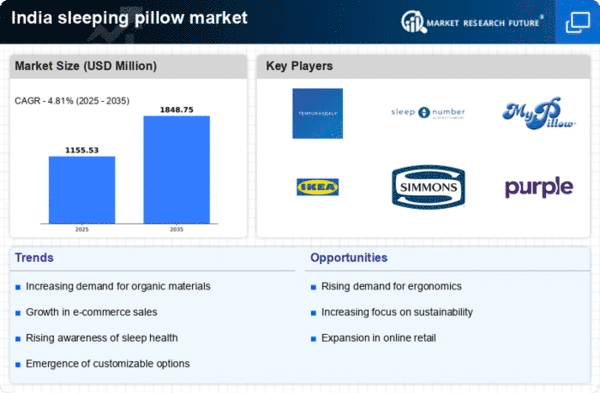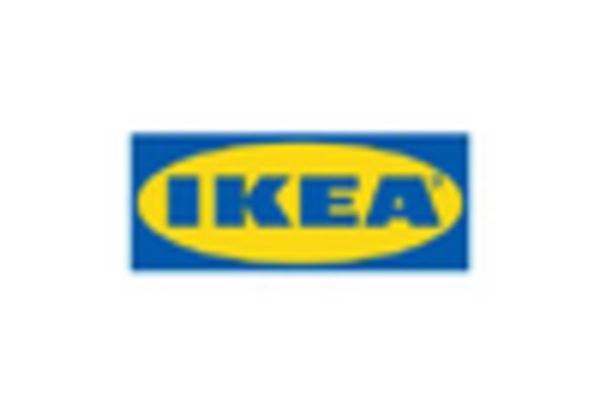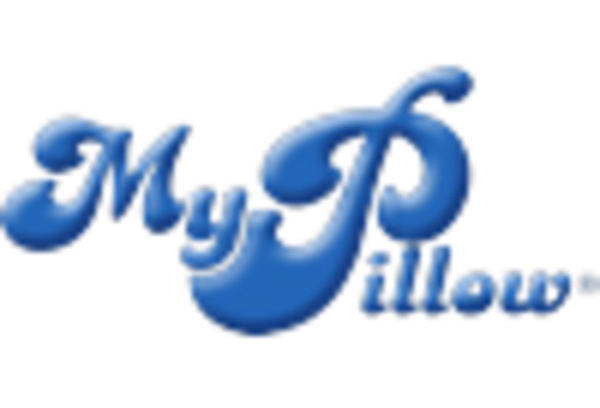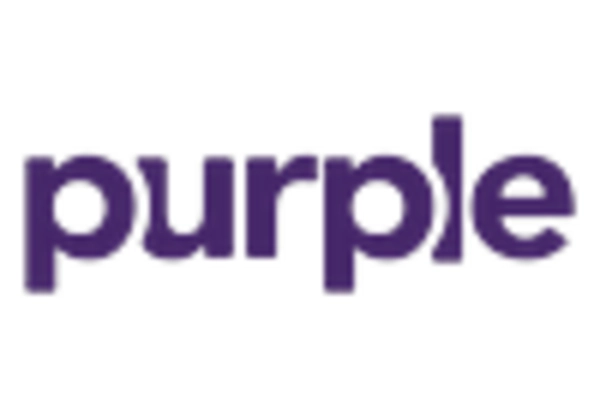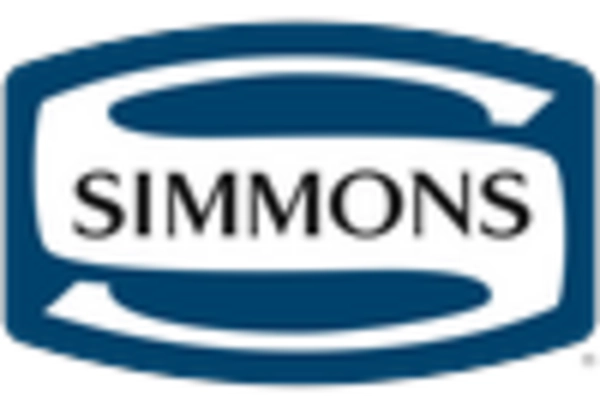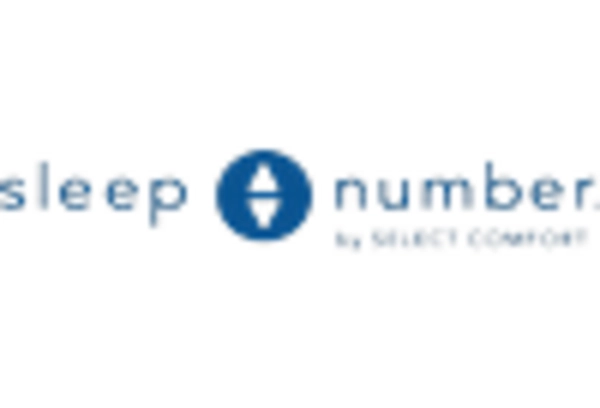Rising Disposable Income
The increase in disposable income among the Indian middle class is a notable driver for the sleeping pillow market. As consumers have more financial resources, they are more willing to invest in premium sleeping products that promise improved comfort and health benefits. Reports indicate that the market for high-end pillows has expanded by approximately 15% in the last year, as consumers prioritize quality over cost. This trend suggests that the sleeping pillow market is likely to see continued growth, as more individuals seek to enhance their sleep experience through better products. The willingness to spend on quality sleep solutions reflects a broader shift in consumer behavior towards health and wellness.
Increasing Health Awareness
The rising awareness regarding health and wellness among consumers in India appears to be a significant driver for the sleeping pillow market. As individuals become more conscious of the importance of quality sleep for overall health, they are increasingly investing in specialized pillows that cater to their specific needs. Reports indicate that the demand for orthopedic and memory foam pillows has surged, with a notable increase of approximately 25% in sales over the past year. This trend suggests that consumers are willing to spend more on products that promise better sleep quality, thereby propelling the sleeping pillow market forward. Furthermore, educational campaigns by health professionals about the impact of sleep on physical and mental well-being are likely to continue influencing purchasing decisions, making health awareness a crucial factor in the market's growth.
Influence of Online Retailing
The rise of online retailing in India is reshaping the sleeping pillow market by providing consumers with greater access to a variety of products. E-commerce platforms allow for easy comparison of features, prices, and customer reviews, which empowers consumers to make informed purchasing decisions. Data shows that online sales of sleeping pillows have increased by around 40% in the past year, indicating a shift in shopping habits. This trend suggests that the sleeping pillow market is likely to continue expanding as more consumers turn to online platforms for their purchases. The convenience and accessibility of e-commerce are expected to play a crucial role in driving sales and introducing new products to a wider audience.
Urbanization and Lifestyle Changes
Urbanization in India is driving significant changes in lifestyle, which in turn impacts the sleeping pillow market. As more individuals move to urban areas, they often experience increased stress and irregular sleep patterns. This shift has led to a growing demand for pillows that provide enhanced support and comfort, such as memory foam and latex options. Market analysis indicates that urban consumers are more inclined to invest in high-quality sleeping products, with a reported increase of 20% in sales of premium pillows in metropolitan regions. The sleeping pillow market is likely to continue evolving as urban lifestyles demand innovative solutions for better sleep, reflecting the changing needs of consumers in these areas.
Technological Advancements in Materials
Technological innovations in materials used for sleeping pillows are transforming the sleeping pillow market in India. The introduction of advanced materials such as gel-infused memory foam and breathable fabrics has enhanced comfort and support, appealing to a broader consumer base. These innovations not only improve sleep quality but also address common issues such as heat retention and allergies. Market data suggests that pillows made from these advanced materials have seen a growth rate of around 30% in consumer preference. As manufacturers continue to invest in research and development, the sleeping pillow market is likely to benefit from ongoing advancements, leading to a more diverse range of products that cater to various sleep preferences and health requirements.


